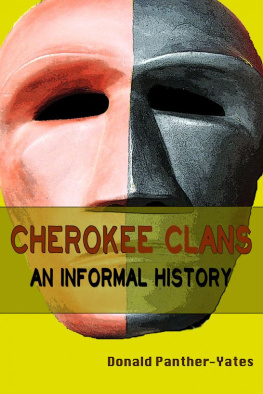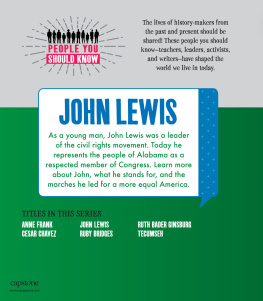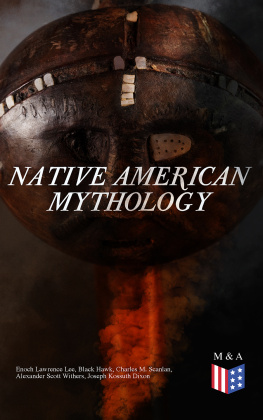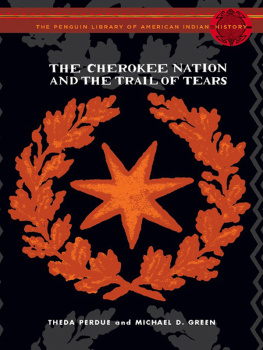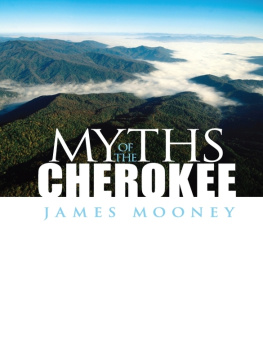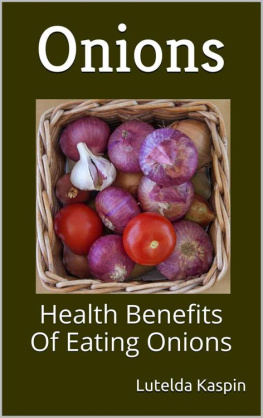ESSAY
The Case of the Wild Onions
The Impact of Ramps on Cherokee Rights
by Courtney Lewis
[T]he Eastern Band of Cherokee Indians and Cherokees have been harvesting ramps in this area for over 10,000 years. Youre going to hear testimony, your honor, about this particular landthis land where the park is presently located where these incidents occurredwhich was part of the traditional Cherokee homeland... And youre going to hear about the ramps [and] the traditional method that [the Cherokee] use to harvest these particular plants... So, your honor, I believe that when were through, Ill be able to make to you the legal argument that the Cherokee have an easement that allows them to take [ramps] and that they have not just a legal right, but a moral right to do so as one of their inherent cultural rights as native Cherokee people.Excerpt from defense attorney James Kilbournes opening statement in U.S. v. Burgess, November 23, 20091

One might have imagined that this trial was for drug trafficking or a violent crime, but it was about something that had much more profound implications: picking plantsspecifically, wild onions, also known as ramps. At the annual Ramp It Up! Festival in Cherokee, North Carolina, 2009, courtesy of the Eastern Band of Cherokee Travel & Promotion, www.cherokee-nc.com.
INTRODUCTION
We had been sitting on the hard wooden pews at the federal courthouse in Bryson City, North Carolina, for hours on November 23, 2009, the Monday before Thanksgiving. We stretched our legs during the small break we were given for lunch and made sure to leave enough time to get back through the security screening at the building so that we would not miss any of the case as it continued well into that afternoon. At least half of the courtroom was filled with American Indians, mostly from the Eastern Band of Cherokee Indians (also known as the EBCI or Eastern Band) of North Carolina, along with a few from the Cherokee Nation of Oklahoma (the Western Band). This was an unusual sight even for this town that borders the Qualla Boundary, the current homeland of the Eastern Band. Professors, elders, and even the Eastern Band chief attended both as witnesses and, like me, to offer moral support. Finally, the defendant, George Burgess, who is an Eastern Band citizen, was called to testify. The air in the room went from lighthearted post-lunch chatting to dour and intense. Judging from the sudden solemnity, one might have imagined that this trial was for drug trafficking or a violent crime. But it was about something that had much more profound implications: picking plantsspecifically, wild onions.
Burgess and three other men had been charged with illegally harvesting ramps in the Great Smoky Mountains National Park (GSMNP) of North Carolina earlier that year. Although this may seem like a trivial charge, this case would transcend its modest beginnings to become a story about mislabeled national boundaries and the rights of indigenous peoples to continue to practice traditions that are millennia old. This case was a touchstone for the continuation of Native Peoples rights and the willingness of the federal government to acknowledge those rights. As a Cherokee Nation citizen, I watched the proceedings with intense interest and crossed fingers.
THE CASE
[M]ost importantly, youre going to hear that the Cherokee take these particular ramps from this particular place and will do so over the course of generations.
Kilbourne, opening statement
This story, of course, has its beginnings far before the trial started that day. For seventy of the seventy-five years since the parks opening in 1934, the National Park Service (NPS) had quietly consented to Eastern Band citizens harvesting ramps once per year in the early days of spring, occasionally digging through the snow to do so. The establishment of the Great Smoky Mountains National Park was both welcomed and contested in its time, and these new governmental stewards of the Park have recognized the deep attachment displaced Appalachian communities have to this land. The Qualla Boundary borders the Park and, as such, necessitates a good working relationship between the Park Services and the Eastern Band. This relationship was like many in the mountains in which informal agreements, talked over a table and a handshake, had as much weight as a signed contract. A positive relationship between the EBCI and the NPS was especially important since harvesting ramps in the Great Smoky Mountains had been a Cherokee practice long before the mountains were known by their current English name and as far back as Cherokee memory goes. According to common academic thought, that would be about 10,000 years; according to most American Indians, it is much further back. As Burgess testified that day, Ive been gathering ramps in the park my whole life. I didnt think I was doing anything wrong.

The Qualla Boundary borders the Great Smoky Mountains National Park, and harvesting ramps in the Smokies had been a Cherokee practice long before the mountains were known by their current English name. The Qualla Boundary, eastern entrance to the Great Smoky Mountains National Park, in Durwood Barbour Collection of North Carolina Postcards (P077), North Carolina Collection Photographic Archives, Wilson Library, University of North Carolina at Chapel Hill.
These wild onions are one of the first portents of spring and are difficult to spot if you do not know what you are looking for. The ramps tender leaves look to the untrained eye like any other large grass shoot that covers the forest floor. Their flavor, when picked young, before they become fibrous, is akin to a leek or a green onion commonly found at the market, but sweeter. Historically, these first fresh greens to pop up in the spring were a much-welcomed reprieve during a time when winter meant dried meat and stored goods for months on end. Typically, they are eaten either fried with grease and potatoes (sometimes even scrambled eggs) or, if you want to bring their pungent nose down a notch or two, boiled. The leftover ramps are then frozen so that they can be served throughout the year for special occasion dinners (Thanksgiving, Christmas, before ceremonies, etc.).
As Kilbourne conveyed that day in his opening remarks, harvesting ramps means much more than just a dinner for the Cherokees: Youre going to hear about the ramps uses for medicinal purposes, for spiritual purposes, for ceremonial purposes. Youre going to hear from elders, from scientists, from ethnobotanists about the unique role and importance of the particular location of the ramps and how the process of actually going to gather the ramps is part of a spiritual process for the Cherokee people. It is not just simply having dinner and consuming them thats important to the Cherokee, but its the entire process of gathering.
Today, the Eastern Band, as well as many other mountain town communities throughout the Appalachians, from Tennessee to Virginia, have festivals dedicated to these delicious wild onions. The Eastern Band also takes this time to honor their Cherokee elders and veterans. During this festival, typically held in late March when ramps are at their peak on the Qualla Boundary, you can have your plate piled high with EBCI tribal enterprise-farmed trout, potatoes, cornbread, coleslaw, mac-and-cheese, banana pudding, a drink, and, of course, rampsall for $10. The line is always long, but the wait is worth every moment.





